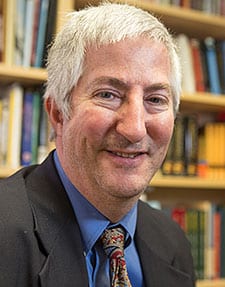
- This event has passed.
Archaeological Institute of America Lecture: Dr. Eric H. Cline
November 4, 2018 @ 3:00 pm - 5:00 pm
Abstract: For more than three hundred years during the Late Bronze Age, from about 1500 BC to 1200 BC, the Mediterranean region played host to a complex international world in which Egyptians, Mycenaeans, Minoans, Hittites, Assyrians, Babylonians, Cypriots, and Canaanites all interacted, creating a cosmopolitan and globalized world-system such as has only rarely been seen before the current day. It may have been this very internationalism that contributed to the apocalyptic disaster that ended the Bronze Age. When the end came, as it did after centuries of cultural and technological evolution, the civilized and international world of the Mediterranean regions came to a dramatic halt in a vast area stretching from Greece and Italy in the west to Egypt, Canaan, and Mesopotamia in the east. Large empires and small kingdoms, that had taken centuries to evolve, collapsed rapidly. With their end came the world’s first recorded Dark Ages.
It was not until centuries later that a new cultural renaissance emerged in Greece and the other affected areas, setting the stage for the evolution of Western society as we know it today. Blame for the end of the Late Bronze Age is usually laid squarely at the feet of the so-called Sea Peoples, known to us from the records of the Egyptian pharaohs Merneptah and Ramses III. However, as was the case with the fall of the Roman Empire, the end of the Bronze Age empires in this region was probably not the result of a single invasion, but rather of multiple causes. The Sea Peoples may well have been responsible for some of the destruction that occurred at the end of the Late Bronze Age, but it is much more likely that a concatenation of events, both human and natural — including earthquake storms, droughts, rebellions, and systems collapse — coalesced to create a “perfect storm” that brought the age to an end.
In this illustrated lecture, based on his book of the same title 1177 BC: The Year Civilization Collapsed; Princeton University Press (2014), that was considered for a 2015 Pulitzer Prize, awarded the American School of Oriental Research’s 2014 prize for “Best Popular Book on Archaeology,” and is being translated into fourteen foreign languages.
Eric H. Cline is a classical and biblical archaeologist and ancient historian whose primary fields of study are biblical archaeology, the military history of the Mediterranean world from antiquity to present, the Bronze Age Aegean, and the international connections between Greece, Egypt, and the Near East during the Late Bronze Age (1700-1100 BCE). He is director of the Tel Kabri Expedition and co-editor of the Bulletin of the American Schools of Oriental Research
